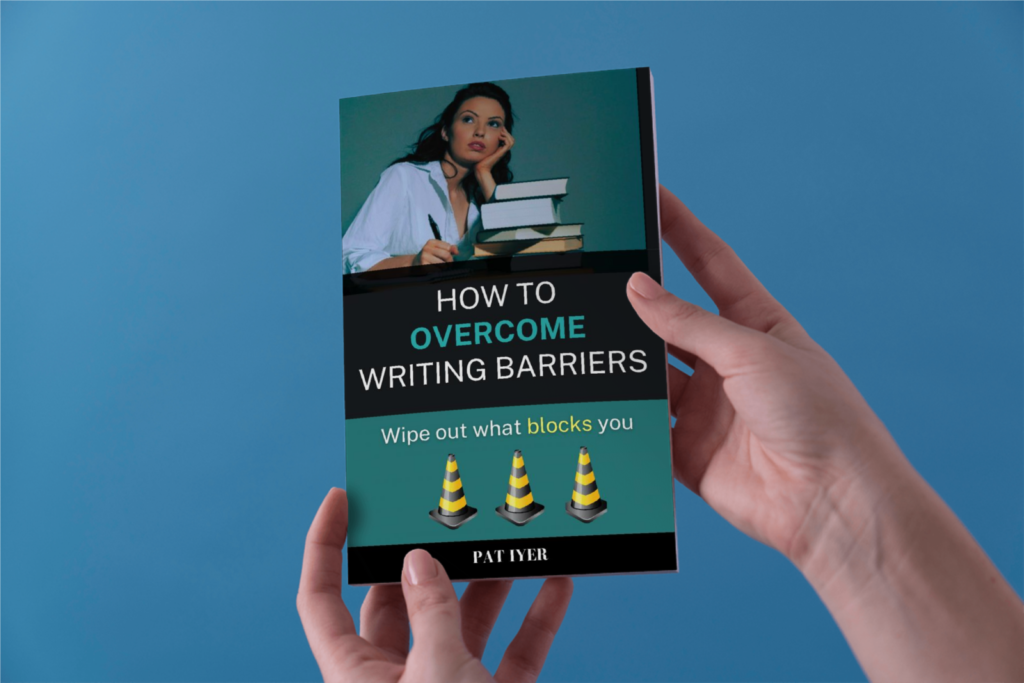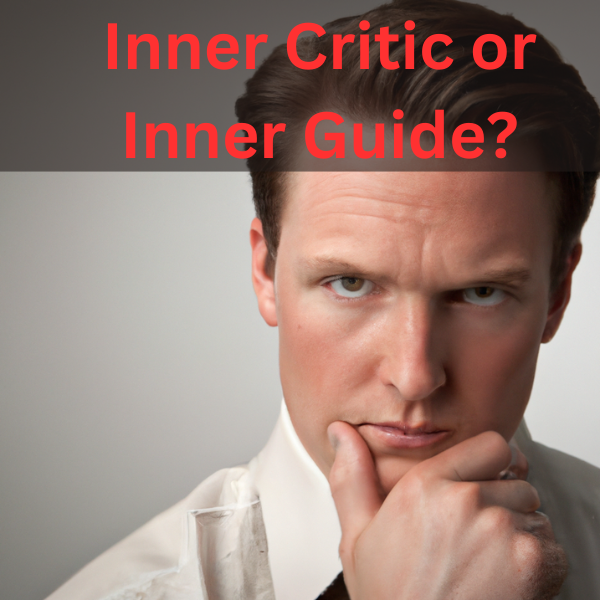At any stage of my writing, I may hear an inner critic, a voice that says things like, “No, that isn’t good. That’s garbage. Delete it and start over.” My voice can also say, “I love that passage. Write more of those.”
Do I listen? Do I obey this voice? Maybe. First, I have to determine whether the source of this critique is the inner critic or inner guide. After years of experience in relationship with both voices, I found it much easier to distinguish between them, but newer writers can become confused and led astray.
You can save yourself a lot of grief and time when you know who’s talking.
The Inner Critic
This voice doesn’t speak only when you’re writing, which is one way to identify it. You can hear it any time you go outside your comfort zone.
You decide to start a new business. The inner critic says, “Are you crazy? You don’t know anything about business.”
You want to ask an attractive person out for a date. “She’s out of your league,” cries the inner critic. “You’re only going to be disappointed and feel badly about yourself.”
If you listen very carefully, you may recognize in the inner critic’s words the voice of your mother, father, or any significant adult who acted as your primary authority during your formative years.
That voice was trying to keep you from danger. It yelled at you when you started to cross the road without looking both ways. It made you wear a helmet when you rode a bike.
In your adulthood, it has become that part of you that’s internalized all those fears, anxieties, and warnings.
If you’re wondering why it would get so worked up about writing, which is not a life-threatening activity, it’s because it knows your fears and self-doubt. The more you have, the louder it will speak. It’s trying to save you from mental and emotional pain, which it identifies as danger.
It’s doing you a favor by bringing your fears to the surface and giving you an opportunity to face them. With this in mind, you can have a dialogue with it—and that’s really a conversation between battling parts of yourself.
I recommend getting to the core. Have an introspective conversation with your inner critic. “Inner critic, why are you determined to make me give up writing?”
“Because you should be building your business instead.”
“What if the publication of this book helps me build my business?”
“You’d have to write a good book, though. You have no experience.”
“I can take courses. I can hire a coach. I can connect with other writers. You could help by giving me suggestions that actually guide me.”
These ideas reassure the inner critic. You will probably have to have this kind of conversation more than once in the course of your writing journey, but each one will lead you to greater mutual understanding. The inner critic will learn how to become the inner guide.
 The Inner Guide
The Inner Guide
This voice also operates in various situations, but it’s more likely to tell you to take risks, large or small. It may say things like, “Why don’t you try this?” or “Ask this person for some help.”
In terms of your writing, this voice isn’t nearly as loud as the inner critic. It often communicates with an unpleasant sensation, the emotional equivalent of feeling that you just ate some food that was off. It may be as simple as a feeling of discomfort when you read what you’ve written.
Something, you realize, is wrong with it, and it isn’t a small wrong; it’s big; it’s fundamental; it may be the size of the San Andreas Fault.
If you experience this, you may feel that every step you take in the direction you are following is taking you away from what you want to say, but you don’t know how to get back to the basics.
Pause
Put the work aside for a few days. Have a conversation with your inner guide about it. You can say something like, “I’m putting this down, and I’m opening my mind to hear your guidance.”
You may get a new perspective on the project as a whole. You may discover something different, for example, that you need to move sections around for a better flow.
If that doesn’t work, put it aside for a longer period of time. Depending on your schedule, and especially if you’re writing for a targeted publication date, you might take two weeks to a month away from the project.
If you don’t get any clear messages from your inner guide, return to the work, and read it like someone who didn’t write it. I know, that’s hard, and it’s equally difficult to read it like someone unfamiliar with the subject. It Is easy to lose your subjectivity.
If your inner guide still refuses to cooperate, consider that you’re refusing to listen because you’re deeply invested in the time and brainpower you used to write this. If you listen carefully to the inner guide, you may hear it saying, “Get help.”
At this point, you may want to enlist a friend to read it. You can also decide to enlist professional editorial help. You can be assured that you will get an objective response. If the editor feels that structural changes, for example, would solve the problem, I’d listen.
I provide this type of editorial assistance to non-fiction authors.
Prime the Pump by Honing Your Awareness
Get clear on the difference between the inner critic and the inner guide.
Remember that their purposes appear to be opposing. The inner critic wants to keep you safe—whatever that means to you. The inner guide wants you to explore, to go beyond your comfort, to listen to its voice, which transcends reason, logic, and other left-brain limitations.
Listen to your body, to rambling thoughts that may at first make no sense. 
Allow your inner guide to direct you. You’ll not only become a better writer, but you may discover improvements in other aspects of your life.
Get your instant download of How to Overcome Writing Barriers: Wipe Out What Blocks You. Learn how to subdue your inner critic.
Pat Iyer MSN RN LNCC is a co nsultant, speaker, author, editor and coach. She has written or edited over 65 of her own books and worked with a few dozen authors. Pat is an Amazon international #1 bestselling author. Coaches, consultants, and speakers hire Pat to help release the knowledge inside them so that they can attract their ideal clients.
nsultant, speaker, author, editor and coach. She has written or edited over 65 of her own books and worked with a few dozen authors. Pat is an Amazon international #1 bestselling author. Coaches, consultants, and speakers hire Pat to help release the knowledge inside them so that they can attract their ideal clients.
She delights in assisting people to share their expertise by writing. Pat serves international and national experts as an editor, book coach, and a medical and business writer.
